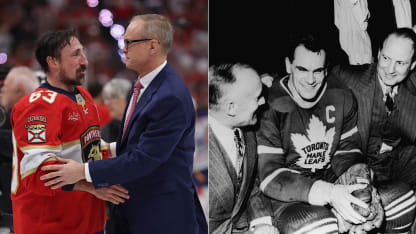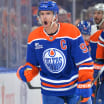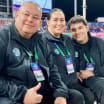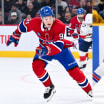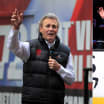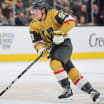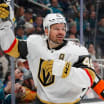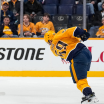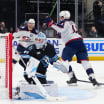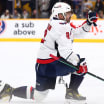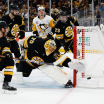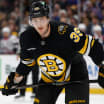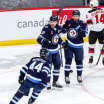Legendary hockey reporter Stan Fischler writes a weekly scrapbook for NHL.com. Fischler, known as "The Hockey Maven," shares his humor and insight with readers each Wednesday. This week is a correlation between the back-to-back Stanley Cup champion Florida Panthers and the threepeat Toronto Maple Leafs of the late 1940s designed exactly along the lines of Florida's blueprint.
General manager Bill Zito and the Panthers front office built a two-time Stanley Cup champion with a simple formula that closely followed that of Conn Smythe's Maple Leafs, who dominated the late-1940s post-World War II NHL years.
That the formula had legs was evident with the Panthers' six-game win against the Edmonton Oilers in the Stanley Cup Final. What's so compelling is the similarity in quality between the Panthers and the Toronto dynasty from 1946-51. Previously, over 32 years of NHL history, no team had been able to string more than two Cup championships together. The Maple Leafs under coach Hap Day not only won a third title in 1949, they added a fourth in 1951.
Grit could have been the middle name for the Maple Leafs of the late 1940s and the Panthers of today. Their respective lineups were sprinkled with heavy -- and relentless -- hitters.
At training camp in September 1946, Smythe said: "If you can't lick 'em in the alley, you can't beat 'em on the ice." Then, the owner added, "I don't mean that you scare the other guy, but that you show him there's no fear in you."
To that end, the Maple Leafs crafted a sandpaper lineup not unlike the Panthers. Rugged forwards such as "Wild" Bill Ezinicki, Vic Lynn, and Harry Watson were bolstered by rambunctious defensemen Jim Thomson, Gus Mortson, Garth Boesch and Wally Stanowski.
"If the other team starts shoving you around," Smythe said, "I expect you to shove them right back -- HARDER! And if one of our players should get injured by illegal tactics of the enemy, I expect the players on our team to see that the man responsible does not get away with it."
After second-place finish in 1946-47, the Maple Leafs defeated the Detroit Red Wings in five games of the NHL Semifinals and won the Stanley Cup with a six-game victory against the defending champion Montreal Canadiens.
"We won because of Hap Day's coaching, our old champions and the play of kids who wanted to be champions," Smythe said.
It’s noteworthy that not a single member of the 1947 winners gained a spot on neither the NHL First nor Second All-Star Team.
"Hap thoroughly understood the team and the individual talents needed to win," wrote right wing Howie Meeker in his autobiography, "Golly Gee -- It's Me! The Howie Meeker Story"
"He could get the three most important ingredients out of his talent: hard work, discipline and respect."
Like Day, Panthers coach Paul Maurice blended the same formula with rugged individuals like defensemen Gustav Forsling, Aaron Ekblad, Niko Mikkola and Nate Schmidt. Likewise, the goaltending, then and now, were each an "Old Reliable," Turk Broda and Sergei Bobrovsky. Broda was 33 when Toronto was crowned champions in 1947. "Bob" was 35 in June 2024 backing Florida's first title team.
Smythe and Zito also shared the same replenishment idea. The Panthers acquired forward Brad Marchand from the Boston Bruins and defenseman Seth Jones from the Chicago Blackhawks prior to the NHL Trade Deadline. Marchand scored six goals in the Final while Jones reinforced an already solid defense.
The Maple Leafs similarly made two defense-offense golden moves. First, Bill Barilko was promoted from Hollywood of the Pacific Coast League on Feb. 6, 1947. On Nov. 2, forwards Gus Bodnar, Bud Poile and Gaye Stewart, and defensemen Bob Goldham and Ernie Dickens, were traded to Chicago for forwards Max Bentley and Cy Thomas. Within four seasons, Bentley played on three Cup championship teams.
"We needed a first-class center to round out the team as a championship contender, "Smythe said, "and Bentley was the man. Barilko became our best bodychecker."
The Panthers ended the Cup Final with a 5-1 win in Game 6, proving they were a team in the truest sense.
"If you came to our room this morning, you wouldn’t be able to tell who the new guys were,” Zito said. "I think that says everything."
The common denominator here is excellence at all points -- and at all costs.
NHL.com columnist Nicholas J. Cotsonika contributed to this report
